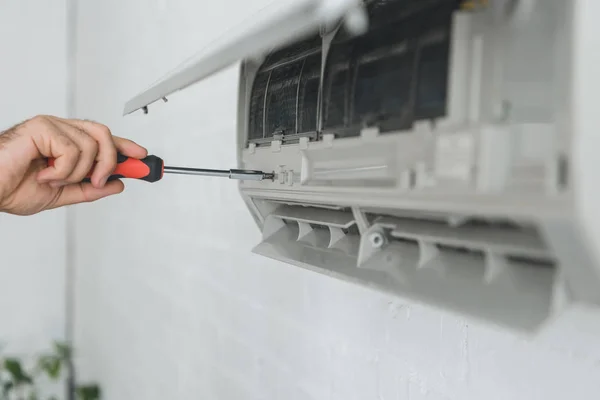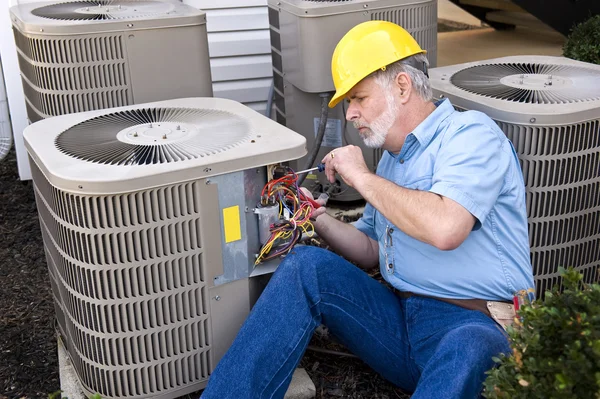Comprehensive Air Conditioner Repair For Efficient And Long-Lasting Performance
Air conditioners are essential for maintaining comfort during hot weather. Like any other machine, they require regular maintenance and repair to ensure they run efficiently and have a long lifespan. A well-maintained air conditioner not only cools effectively but also consumes less energy, leading to lower utility bills. In this article, we'll explore the essential aspects of air conditioner repair to enhance efficiency and prolong the unit's performance.
Understanding the Importance of Regular AC Maintenance
Regular maintenance is crucial for ensuring the efficiency of your air conditioner. Over time, dust, dirt, and debris accumulate in the system, which can cause various issues if left unchecked. Clogged filters, dirty coils, and blocked drainage lines are some of the most common problems that arise due to poor maintenance. These issues can reduce the cooling capacity, increase energy consumption, and even lead to complete system breakdowns.
To avoid such complications, scheduling periodic maintenance checks is essential. This involves cleaning the air filters, inspecting the coils, and ensuring the refrigerant levels are adequate. Regular maintenance not only improves the unit's performance but also extends its lifespan by preventing costly repairs or replacements.
Diagnosing Common Air Conditioner Issues
Air conditioners can encounter several issues over time, and diagnosing these problems early is key to preventing expensive repairs. Some common issues include:
- Refrigerant Leaks: Low refrigerant levels can significantly reduce the cooling capacity of the AC. This usually occurs due to leaks in the system, and it’s essential to fix these leaks and recharge the refrigerant to the correct levels.
- Frozen Evaporator Coils: If the evaporator coils freeze, it can prevent the air conditioner from cooling properly. This issue often arises when there’s insufficient airflow, typically due to clogged filters or low refrigerant levels.
- Electrical Control Failures: Frequent turning on and off of the AC can wear down electrical components, leading to control failure. This can result in the system not turning on at all or turning off unexpectedly.
- Sensor Problems: Some AC models have sensors that detect room temperature to regulate cooling. If these sensors malfunction, the air conditioner may behave erratically, cooling too much or too little.

Steps for Effective Air Conditioner Repair
Conduct a Comprehensive Diagnosis:
Begin by performing a thorough inspection of the air conditioning system to identify any underlying issues. Check for common problems such as refrigerant leaks, electrical control failures, clogged filters, frozen coils, and drainage issues. Use diagnostic tools to assess performance levels and pinpoint specific malfunctions, ensuring a clear understanding of the repairs needed.
Perform Regular Maintenance:
Establish a routine maintenance schedule that includes cleaning or replacing air filters every 1 to 3 months, inspecting and cleaning the evaporator and condenser coils, and checking the refrigerant levels. This proactive approach prevents common issues from arising and enhances the efficiency of the air conditioning unit, reducing the likelihood of costly repairs down the line.
Address Specific Problems Promptly:
Once issues are diagnosed, take immediate action to resolve them. This may involve fixing refrigerant leaks, cleaning clogged drainage lines, replacing worn electrical components, or thawing frozen coils. Prioritize repairs based on the severity of the problem, and ensure that any replaced parts meet the manufacturer's specifications to maintain system integrity.

Engage Professional Services for Complex Repairs:
For issues that require specialized knowledge or tools, such as refrigerant handling or complex electrical repairs, enlist the help of certified HVAC technicians. Their expertise ensures that repairs are conducted safely and effectively, preventing further damage to the system. Additionally, regular professional inspections can help identify potential problems before they escalate, ensuring optimal long-term performance.
The Role of Professional Air Conditioner Repair Services
While some maintenance tasks can be done by homeowners, such as replacing air filters, many repairs require the expertise of professional technicians. Certified HVAC technicians are trained to handle complex repairs, from fixing refrigerant leaks to replacing electrical components. Professional services ensure that repairs are done correctly and safely, preventing further damage to the unit.
Additionally, professional technicians can perform a thorough inspection of the system, identifying any potential issues before they escalate into major problems. This proactive approach helps in avoiding unexpected breakdowns during peak seasons when the AC is needed most.
When to Consider Replacing Your Air Conditioner
Even with regular maintenance and timely repairs, air conditioners have a limited lifespan. Most units last between 10 to 15 years. If your air conditioner is older than this, frequent repairs may not be worth the cost. In such cases, it’s often more cost-effective to replace the unit with a newer, more energy-efficient model.
Modern air conditioners come with advanced features, such as variable speed motors and smart thermostats, which significantly enhance energy efficiency. Replacing an old unit with a high-efficiency model can reduce energy consumption by up to 30%, translating to lower utility bills and a reduced carbon footprint. Click here to know more.
Ensuring Long-Term Efficiency and Performance
Maintaining long-term efficiency and performance requires a combination of regular maintenance, timely repairs, and occasionally replacing outdated components. To keep your air conditioner running smoothly for as long as possible, follow these best practices:
- Schedule Annual Tune-Ups: An annual inspection by a certified technician will ensure that all components are in good working order and that any minor issues are addressed before they become major problems.
- Keep the Unit Clean: Clear away any debris around the outdoor condenser unit, and make sure the area is well-ventilated. This helps the system operate efficiently and prevents overheating.
- Use a Programmable Thermostat: A programmable thermostat can help regulate your home’s temperature more efficiently, reducing the load on the air conditioner and extending its lifespan.
- Monitor Energy Bills: A sudden spike in your energy bills could indicate that your air conditioner is no longer running efficiently. In such cases, it’s a good idea to have a professional inspect the system for any underlying issues.

